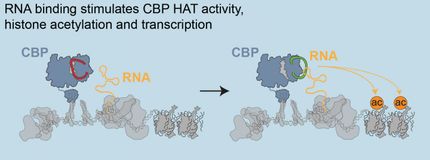Novel process for DNA labeling
For the first time, baseclick GmbH, a start-up company spun off from BASF SE and Ludwig-Maximilians-Universität Munich, is making its newly developed process for labeling nucleic acids (DNA and RNA) available to customers. The company recently signed licensing agreements for this technology with three molecular biology service providers. The new partners baseclick GmbH has signed up are Integrated DNA Technology (IDT) from the U.S., as well as Ella Biotech and metabion from Germany. These service providers produce short DNA fragments (known as oligos) for customers in academic and industrial research. Furthermore, the European Patent Office has granted the basic patent for click chemistry on nucleic acids to baseclick GmbH effective September 1, 2010. “We are turning over a new leaf here in specific modification of nucleic acids for research, diagnostics and nucleic-acid-based medicines,” said Dr. Thomas Frischmuth, General Manager of baseclick GmbH, and added: “We are pleased to make this technology available to globally leading manufacturers of modified nucleic acids by granting them licences on our patent.” The baseclick technology allows users to label multiple dye molecules on DNA strands in a sequence-specific manner. This process is more efficient, more cost effective and simpler than conventional technologies. Labeling with multiple dye molecules used to be highly complicated in the past and was not available commercially. The attachment of multiple dyes enables several or highly complex analyses to be carried out in a single operation. Applications include analyses for pathogens like HIV, hepatitis, or even tumor cells. The technique can also be used to detect mutations in human, animal and plant genomes. The innovation developed by baseclick GmbH is based on the click reaction on nucleic acids, which integrates modified DNA modules into a DNA strand. These modified DNA fragments allow dye molecules to be attached. The reaction enables very specific, i.e., selective and efficient, labeling of DNA without creating any byproducts as conventional methods do. The baseclick technology is based on click chemistry research by Prof. Barry Sharpless (who won a Nobel Prize in Chemistry in 2001) of The Scripps Research Institute, La Jolla, U.S., and Prof. Thomas Carell of Ludwig-Maximilians-Universität Munich, Germany. baseclick GmbH has obtained a worldwide license from The Scripps Research Institute to practice click chemistry in its field of research.
Most read news
Other news from the department research and development

Get the analytics and lab tech industry in your inbox
By submitting this form you agree that LUMITOS AG will send you the newsletter(s) selected above by email. Your data will not be passed on to third parties. Your data will be stored and processed in accordance with our data protection regulations. LUMITOS may contact you by email for the purpose of advertising or market and opinion surveys. You can revoke your consent at any time without giving reasons to LUMITOS AG, Ernst-Augustin-Str. 2, 12489 Berlin, Germany or by e-mail at revoke@lumitos.com with effect for the future. In addition, each email contains a link to unsubscribe from the corresponding newsletter.






























































